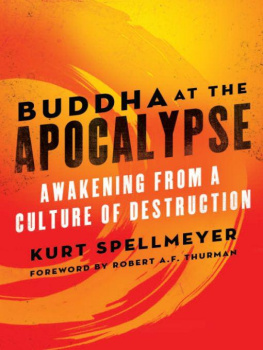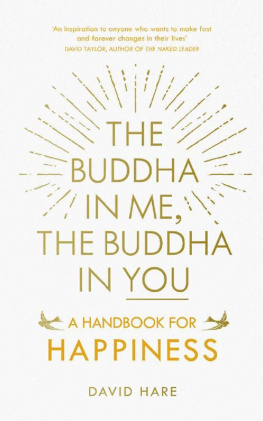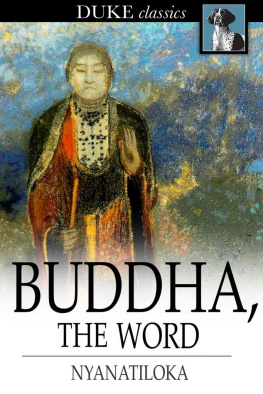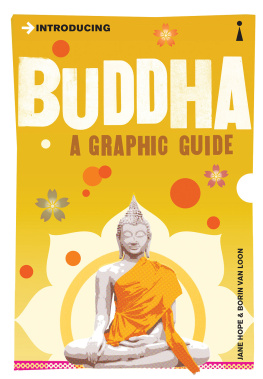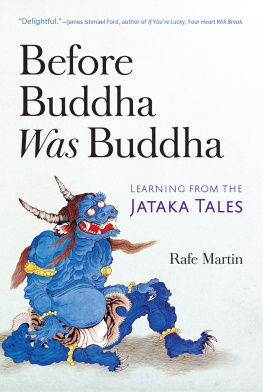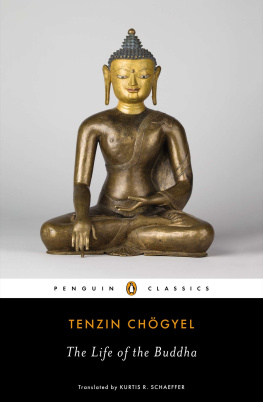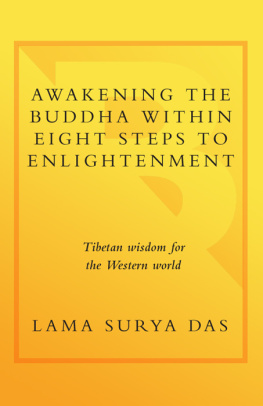Table of Contents
A single meditation cushion, and one is completely protected,
Earth may crumble, heaven collapsebut here one is at peace.
Xinggang,
in Daughters of Emptiness:
Poems of Chinese Buddhist Nuns
FOREWORD
I n a critical scene in James Camerons blockbuster movie Avatar , a human character warns the aliens of the planet Pandora of the danger his people represent to all Pandoran life. Theres no green there, he says of his own home world. Theyve killed their planet, their mother. And, he says, theyll do that to Pandora as well. Its a powerful artistic evocation of a future we recklessly race to bring about.
But why is this so? Why do both the masses and our dominant elite insist on self-destruction in the name of progress? Why do we rush lemming-like toward the precipice of ecocide, genocide, and suicide?
In this truly apocalyptic era, Kurt Spellmeyer has combined his broad and deep understanding of Western religious and philosophical literatures with his Zen learning and meditational practice to illuminate part of the answer of how we got here. He has produced an insightful analysis of what he identifies as an apocalyptic orientation toward time itself that has built a mental architecture that continues to shape modern life.
Buddha at the Apocalypse is easy going, well written, and solidly reasonedand lively in the way it interweaves Biblical analysis, Zen literature, and Western philosophy and sociology with popular culture and deep wisdom. I am delighted to greet this important and meaningful work and wish its author and many readers a fruitful walk in its garden of perceptive insights and heartfelt advice.
PREFACE
O nly now, after several hundred years, is the destructiveness of our way of life starting to become apparent. Global climate change, environmental degradation, economic instabilitythese are just the top items on the list. But perhaps the most striking thing about it all is that our awareness of this truth has been so long in coming. Why were so few people listening? And why are so few responding even now?
One of the reasons would have to be culture. Our cultural heritage has taught us to believe that the Forward March of Progress is unstoppable and unequivocally goodif we just keep going straight ahead, a better life is guaranteed. A common enough sentiment, but this idea rests on another one whose significance is often overlooked.
All societies have their founding myths, and in the West ours has been the myth of what I call Apocalyptic history. Weve been taught to see our existence as a road, a journey through the ages that will lead to the transcendence of time itself. This view has its roots in many places, among them the Bible, which promises that someday time shall be no more. The journey begins with the Creation and it ends with the Apocalypse.
Like all great myths, this one has enjoyed two lives. First, it once served as a literal truthan account of reality. And second, it has helped to build a mental architecture that continues to shape modern life unconsciously. Even those of us who no longer believe in Adam and Eve or the return of Jesus might still assume implicitly that time is like a road moving forward to a day when everything will at last be revealed. Many secular progressives, entrepreneurs, and even scientists appear to think this way. But progress as such, and especially as an unequivocal good, is really an article of faith, and not at all an empirical fact.
That faith still has its fundamentalists too. As we can see from the truly massive resurgence of Apocalyptic thinking in our time, what some of us regard simply as a myth is far from dead as a literal truth. For people living in an era so complex that it threatens to tip into utter incoherence, the old notion of an underlying plan has an existential power we cant dismiss as the craziness of a few radicals. No, belief in the End Times is truly alive and well in our culture. And yet the paradigm of time as a road might prove fatal in a universe governed by complexity rather than by Providence.
In this book I argue that the culture of the West begins with a refusal of complexity, or at least a deep ambivalence about it. This refusal has made the universe a battlefield, not just between good and evil but between the apparent chaos of life on earth and Gods order up in heaven. Whether we are comfortable admitting it or not, the God of the Bible sometimes uses violence to maintain a master plan in the midst of a chaotic universe.
The history of religion in the West is quite complex in its own right. As someone who was raised in the Christian faith, I still owe more than I can ever repay to the ethics of love and forgiveness that I learned from the scriptures and from the communities where my family was made welcome. And yet, as a society well never understand how things have gone so remarkably wrong unless we have the courage to address what is dark and dangerous in our tradition. And that understanding can be greatly helped by finding another vantage pointa new place to look back at ourselves. Buddhism, in my view, is just such a place. Buddhism might flourish in the West, or it might disappear as quickly as it came, but while its here it can offer us another way to think about our lives in time.
This book is part of a larger multi-volume project to which a number of friends and colleagues have contributed very generously. That, of course, doesnt mean they always agreed with me. Foremost among those would be Jacky Sach, whose confidence in the basic argument encouraged me at many stages. Others who took the time to read and discuss portions of the project were Kritee, Imtiaz Rangwalla, John McClure, Richard Miller, Dawn Skorczewski, and Raymond Baldino. I learned a great deal from every one of them. I would also like to thank Josh Bartok, my editor at Wisdom, for his advice, good humor, and, yes, real wisdom. Many thanks to you all.
INTRODUCTION:
WELCOME TO THE APOCALYPSE
W ith the election of Barack Obama in 2008, the United States seemed to turn a page on a period of cynicism and decline. Sixty-three million Americans cast votes for the man who had written The Audacity of Hope , and many of them saw the election as a referendum on a brighter future. But Americas vision of the future has always been a complicated affaira tapestry woven from many different strands.
Just two years before The Audacity of Hope , the publishing industry marveled at a very different phenomenon. The Left Behind books by Tim LaHaye and Jerry Jenkins quickly joined the ranks of the all-time bestsellers. Told through the eyes of characters who could be your neighbors or friendsa journalist, an airline pilot, a financier, a Stanford undergradthe series retraced the Biblical events leading up to the end of the world. As each of the volumes went to press, with sales pushing toward eighty million , many readers feared that Armageddon might arrive before LaHaye and Jenkins finished all twelve books.
According to a Time/CNN poll in 2002, 59% of Americans accept the literal truth of the Book of Revelation.
Another key purveyor of Apocalyptic thinking is John Hagee, pastor of a church in San Antonio with 19,000 members, and the founder of Christians United for Israel. CUI members are convinced that by rebuilding the Temple in Jerusalem, they can initiate a chain of events that will bring about the Second Coming of Christ.
Apocalyptic thinking has influenced another area of our lives as well. In a famous speech deriding efforts to curb global warming, the Evangelist Jerry Falwell had this to say: How long will the earth remain? It will remain until the new heavens and the new earth come.The earth will go up in dissolution from severe heat. The environmentalists will be really shook up then, because God is going to blow it all away.

